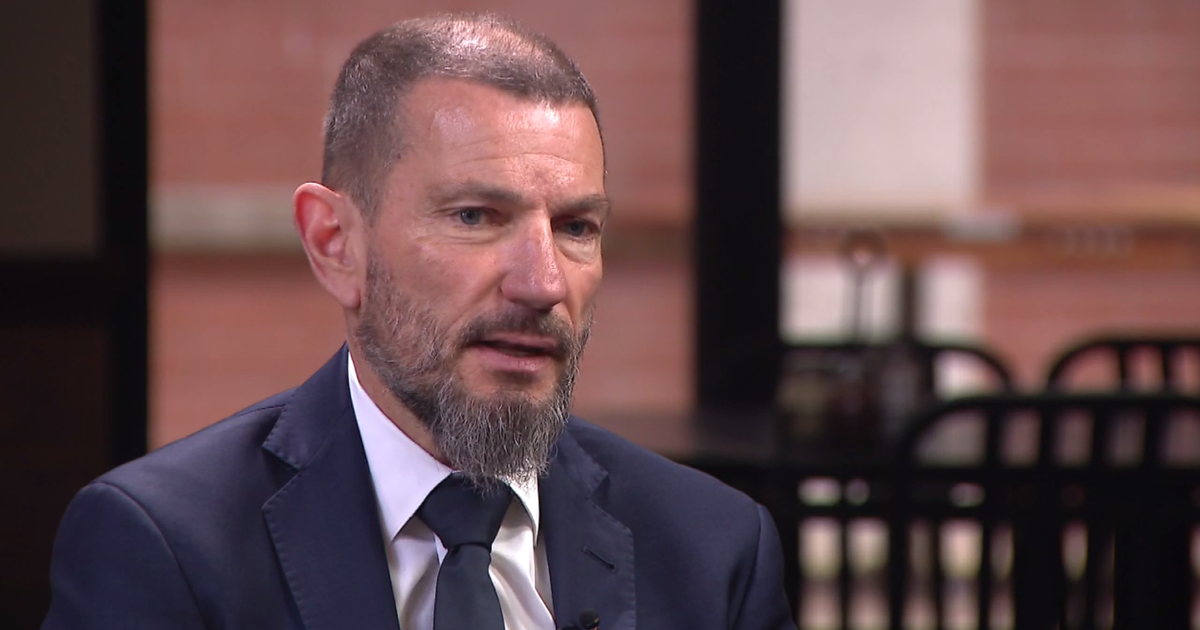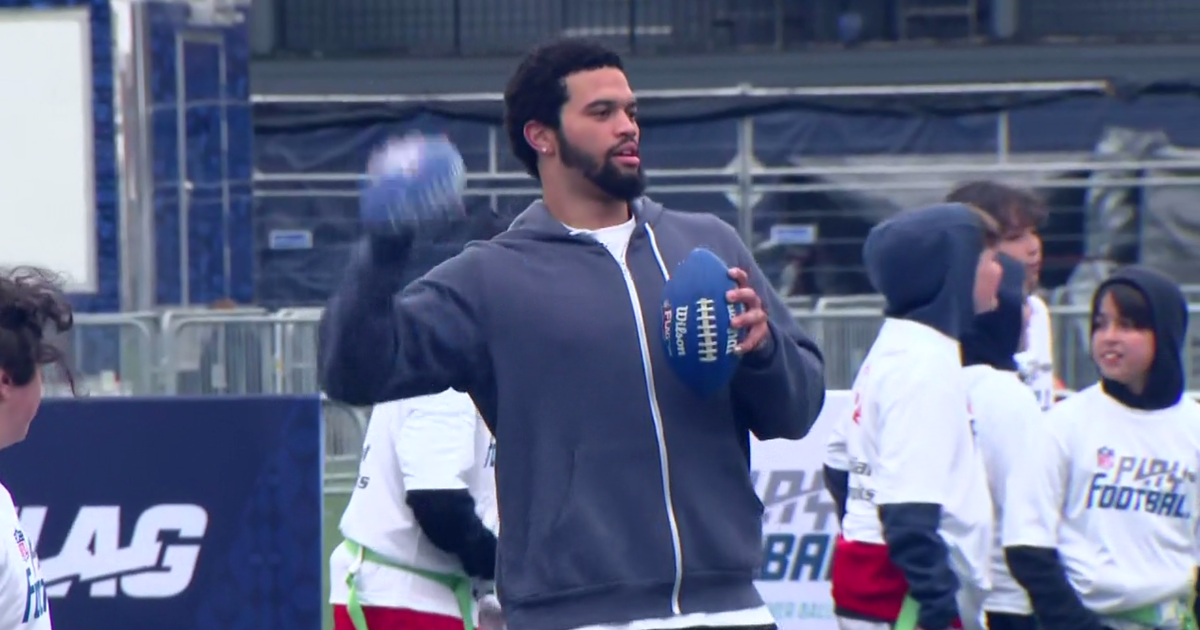Wisch: Free Speech Joins Chief Illiniwek As Target At Illinois
By Dave Wischnowsky –
(CBS) If a beloved symbol represented a major public university for eight decades before its retirement, but the administration worked relentlessly afterward to pretend that it never even existed…
Did Chief Illiniwek ever make a sound?
He will – in absentia, of course – this Saturday afternoon at Memorial Stadium when thousands of Fighting Illini fans bellow "CHIEF" in unison following the band's halftime performance during the team's football season opener against Arkansas State.
Yes, five seasons after he was officially retired by the university under duress from the NCAA, Chief Illiniwek – the school's revered (and embattled) symbol from 1926 to 2007 – remains alive and well in the hearts, minds and voices of many Illinois alumni and fans.
The same, however, unfortunately can't be said today for free speech and freedom of expression at the University of Illinois. Not with the latest disturbing twist in the administration's ongoing – and utterly nonsensical – crusade to wipe out all vestiges of the Chief.
Now by dictating what band members can and cannot wear.
"It's a little Orwellian," former Chief Illiniwek Steve Raquel, of Naperville, said Wednesday night about the university's latest assault upon the memory of the figure he once portrayed. "And it's very unfair."
Since the Chief's retirement in 2007, members of the Marching Illini band have been disallowed from wearing clothing that bears any Chief Illiniwek imagery during official performances. Considering that the Chief has been retired from halftime performances at Memorial Stadium and the symbol's controversy, that's understandable.
What's not, though, is that this summer the university has decided to extend that ban to the point where it's now infringing on students' rights of expression at a public, state-funded school.
According to two current Marching Illini band members that I spoke to this past week, the university's new band director Barry L. Houser, who replaced longtime director Dr. Peter L. Griffin, informed section leaders prior to the start of rehearsals in August that all band members are now forbidden from wearing any apparel that features the name or image of Chief Illiniwek during practice.
"Practice," as Allen Iverson might say. "We're talking about practice."
The two Marching Illini members, who asked to remain anonymous so as to not jeopardize their standing in the band, said the mandate – which they believe came from above Houser's head – has rankled many members of the Marching Illini, who feel that the school has now simply taken things too far regarding the Chief.
"It's been relatively reasonable up until this point," one band member said about the band's policy regarding Chief Illiniwek apparel. "People understand that the school doesn't want us to wear anything with the Chief during performances, but a lot are upset about them doing this for rehearsal. It's very frustrating."
Professor Houser could not be reached for comment on Wednesday. But the students said the rationale explained to them regarding the ban was that if a band member is seen wearing clothing featuring the Chief it could be interpreted by the media or other outsiders that, as a whole, the Marching Illini – with whom Chief Illiniwek performed during for 81 years – remains pro-Chief.
Now, if that sounds like a ridiculous reach to you, well, you're not alone.
"With the wide range of views that people at the university hold on many issues, it's interesting that the university would compel band members to not wear clothing with Chief insignias," Raquel said. "What if somebody wore a rainbow T-shirt during practice, or a pro-Obama T-shirt, or an anti-Obama one? Would anyone assume that the entire Marching Illini was represented by that shirt?"
The two band members I spoke to said that besides wearing clothing flexible enough to march in, there are no other regulations placed on what can and cannot be worn during practice.
"People wear T-shirts during rehearsals all the time that say, 'Marching Illini Bar Crawl 2010,' which was an event not officially supported by the band," one student said. "And that's OK. But a Chief shirt is not."
The students said that things have gone as far with the ban that two Marching Illini members recently were informed that they should go home from practice at lunch to change clothes.
The reason? Well, the University of Illinois T-shirts they had on featured Chief Illiniwek logos – that were one-inch in size.
"One inch," stressed one student I spoke with.
The pair of Marching Illini members also said that the university is asking students to do the dirty work when it comes to enforcing the ban. Each day, section leaders are expected to police the practice apparel that's worn by their fellow band members, the students said.
"Professor Houser was asked how section leaders are supposed to go about enforcing this," one band member explained. "He was silent for several seconds before kind of laughing and saying, 'Well, that's your problem.' But he never answered the question."
The students made it clear that no Marching Illini members have ever worn T-shirts during practice that featured messages such as "Bring Back the Chief" or "Illiniwek Forever." Rather, they said, the band members have been respectful of the school's decision to retire Chief Illiniwek.
To which, I'd argue much more respectful than the school has been towards Chief Illiniwek and his supporters.
"To me, it's sad," added Michael Gamage, a five-year member of the Marching Illini, who graduated from Illinois this past spring. "Even if the Chief is gone, it's still a valid part of Illini history. But with the way that the university is handling things, it's like they're trying to pretend that the Chief never even existed.
"I mean, if someone wears a shirt that does nothing but express school pride and has one little Chief logo, that's not OK? I'm sorry, but that doesn't make any sense."
No, it doesn't. At least when the university opted to retire Chief Illiniwek in 2007, it had legitimate reason (the threat of NCAA sanctions). Today, though, there's no reasonable rationale for the war that the school continues to wage against the Chief and his memory.
The most disturbing thing is that this battle is now extending well beyond just the Chief and also placing a target on free speech and expression at the state's flagship university. Last October, the university also threatened a lawsuit against the Students for Chief Illiniwek organization when it scheduled an unofficial Chief Illiniwek performance at Assembly Hall. The suit was not carried out.
"Is tolerance alive or not alive at the University of Illinois?" Raquel asked on Wednesday. "That word seems to have changed. Now it seems that tolerance means that whatever my view is, you're going to accept it, too."
Well, when it comes to Chief Illiniwek and the University of Illinois, that certainly does seem to be the case. And whether you're pro-Chief, anti-Chief or indifferent on the whole thing, I think we should all be able to agree that such a mindset isn't something healthy to, you know, put into practice.
If nothing else, Dave Wischnowsky is an Illinois boy. Raised in Bourbonnais, educated at the University of Illinois and bred on sports in the Land of Lincoln, he now resides on Chicago's North Side, just blocks from Wrigley Field. Formerly a reporter and blogger for the Chicago Tribune, Dave currently writes a syndicated column, The Wisch List, which you can check out via his blog at http://www.wischlist.com. Read more of his CBS Chicago blog entries here.




